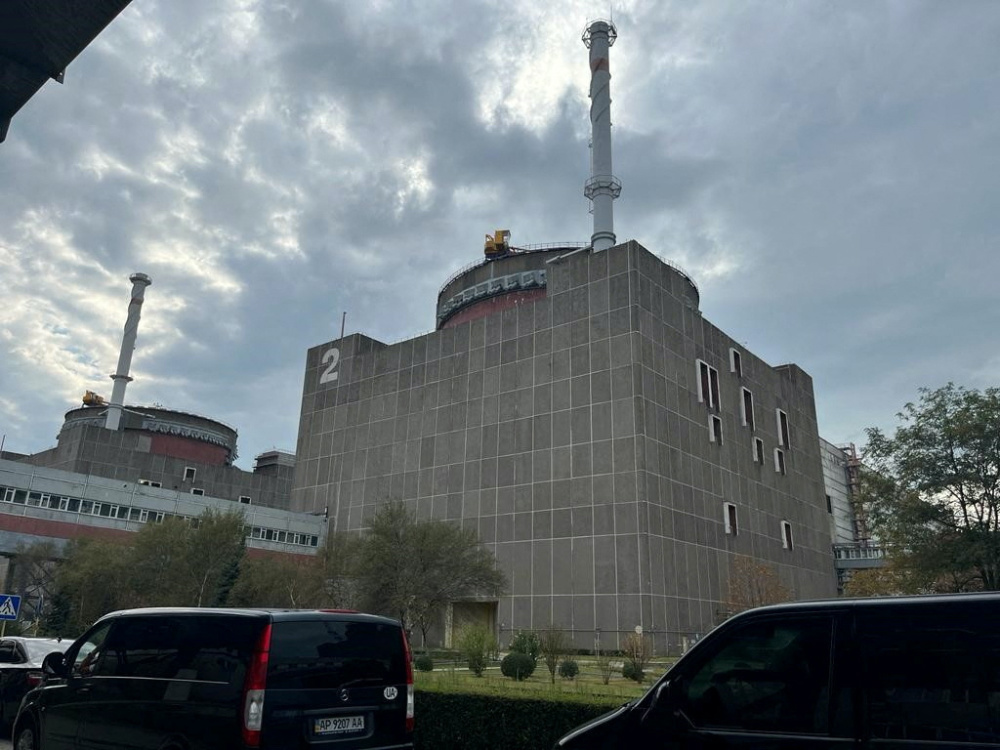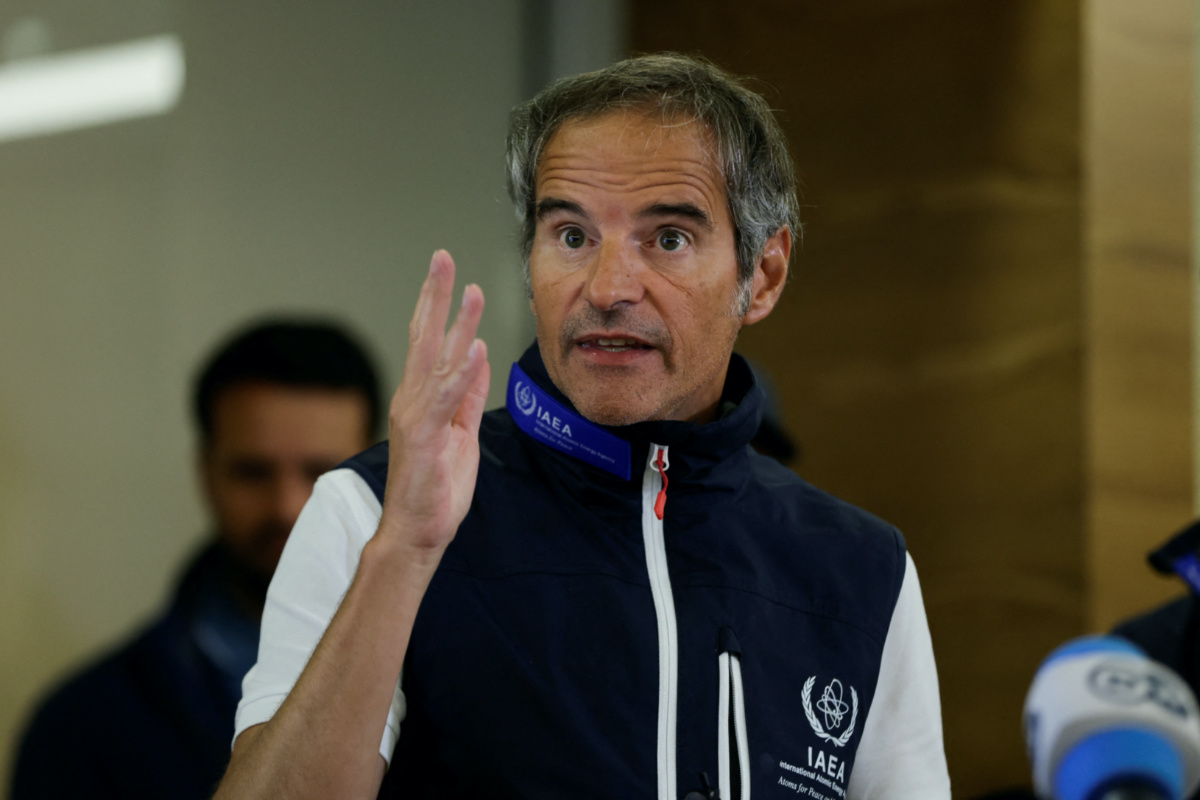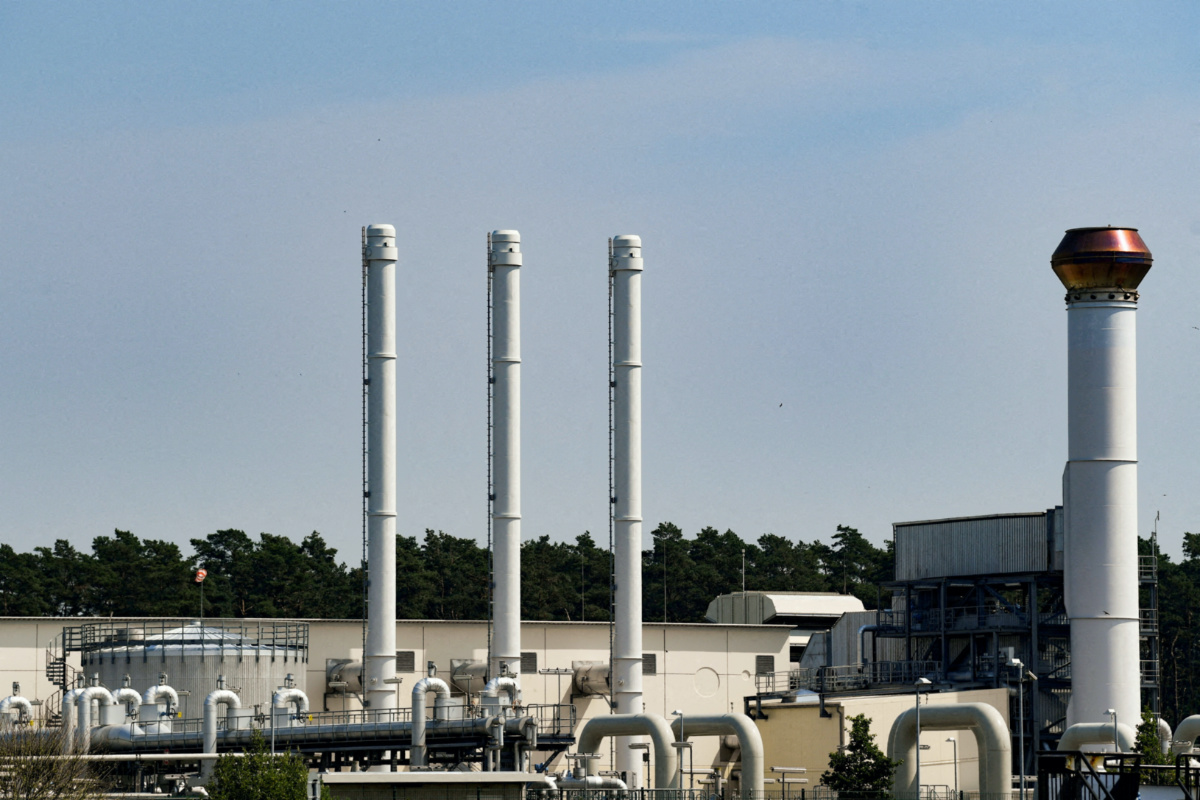Kyiv, Ukraine
Reuters
A critical nuclear power plant in Ukraine again lost external power, international energy officials said on Saturday, heightening concern over its operations as the energy battle between Moscow and the West ramped up in recent days amid the ongoing war.
Ukraine’s Zaporizhzhia plant – the largest in Europe – saw its last remaining main external power line cut off even as a reserve line was able to continue supplying electricity to the grid, the International Atomic Energy Agency said.

A view shows the Russian-controlled Zaporizhzhia Nuclear Power Plant during a visit by members of the International Atomic Energy Agency expert mission, in the course of Ukraine-Russia conflict outside Enerhodar in the Zaporizhzhia region, Ukraine, in this picture released on 2nd September. PICTURE: International Atomic Energy Agency/Handout via Reuters.
Only one of the six reactors remained in operation at the station, the agency said in a statement posted on its website.
The plant, controlled by Moscow since Russian troops invaded Ukraine in late February, has become a focal point of the conflict, with each side blaming the other for nearby shelling.
Meanwhile, the standoff over Russian gas and oil exports continued this week as Moscow vowed to keep its main gas pipeline to Germany shuttered and G7 countries announced a planned price cap on Russian oil exports.
The energy fight is a fallout from President Vladimir Putin’s six-month invasion of Ukraine, underscoring the deep rift it has caused between Moscow and Western nations and comes as the region prepares for the cold months ahead.
“Russia [is] preparing a decisive energy blow on all Europeans for this winter,” Ukrainian President Volodymyr Zelenskiy said in his nightly address on Saturday, citing the Nord Stream 1 pipeline’s continued closure.
Zelenskiy earlier blamed Russian shelling for the nuclear plant’s previous cutoff and had said a radiation leak was narrowly avoided.
Moscow has pointed to Western sanctions and technical issues for energy disruptions, while European nations have accused Russia of weaponizing supplies as part of its military invasion.
Nuclear concerns
Kyiv and Moscow have traded accusations about attacks on the Zaporizhzhia plant, which was captured by Russian forces in March but is still operated by Ukrainian staff and connected to the Ukrainian power grid.
An IAEA mission toured the plant on Thursday and some experts have remained there pending the release of a report by the UN nuclear watchdog in coming days.
Last week, Zaporizhzhia was cut off from the national grid for the first time in its history after transmission lines were cut, prompting power cuts across Ukraine, although emergency generators kicked for vital cooling processes.

Director-General of the International Atomic Energy Agency Rafael Grossi speaks to reporters after his return from Ukraine where he and his team visited the Zaporizhzhia nuclear plant, at Vienna airport in Schwechat, Austria, on 2nd September. PICTURE: Reuters/Leonhard Foeger
Meanwhile, the IAEA on Saturday said remaining inspectors noted one reactor was “still operating and producing electricity both for cooling and other essential safety functions at the site and for households, factories and others through the grid,” the agency said.
The Zaporizhzhia nuclear power station, in a statement on Telegram, said the fifth reactor was switched off “as a result of constant shelling by Russian occupation forces” and that there was “insufficient capacity from the last reserve line to operate two reactors.”
Deteriorating conditions amid the shelling have prompted fears of a radiation disaster, and any accident or nuclear leak at the facility would cause a major humanitarian crisis, the International Red Cross has said.
Ukraine and the West have said Russia is using the site as a base for heavy weapons in a move to discourage Ukraine from firing on it. Russia has denied the presence of any such weapons and so far resisted international calls to pull troops out of the plant and demilitarise the area.
Russia’s defence ministry on Saturday accused Ukrainian forces of mounting a failed attempt to capture the plant, saying more than 250 Ukrainian navel troops attempted to land on the coast of a nearby lake despite IAEA’s presence.
Reuters was unable to verify the report.
Turkey on Saturday also offered to facilitate the situation.
We rely on our readers to fund Sight's work - become a financial supporter today!
For more information, head to our Subscriber's page.
Gas and oil
In its announcement on Friday that it would not resume shipments through the Nord Stream 1 pipeline as had been expected, Russia’s state-controlled energy giant Gazprom blamed a technical fault.
Gazprom said on Saturday that Siemens Energy was ready to help repair broken equipment but that there was nowhere available to carry out the work. Siemens said it has not been commissioned to carry out maintenance work for the pipeline but it is available.
Nord Stream 1, which runs under the Baltic Sea to supply Germany and others, had been due to resume operating after a three-day halt for maintenance on Saturday at 0100 GMT.

Pipes at the landfall facilities of the ‘Nord Stream 1’ gas pipeline in Lubmin, Germany, on 21st July. PICTURE: Reuters/Annegret Hilse/File photo.
Moscow has blamed sanctions imposed by the West after Russia’s 24th February invasion of Ukraine for hampering routine operations and maintenance of Nord Stream 1. Brussels and Washington accuse Russia of using gas as an economic weapon.
The indefinite delay to resuming gas deliveries will deepen Europe’s problems securing fuel for winter with living costs already surging, led by energy prices.
Finance ministers from the Group of Seven wealthy democracies – Britain, Canada, France, Germany, Italy, Japan and the United States – said on Friday a cap on the price of Russian oil was meant to “reduce … Russia’s ability to fund its war of aggression whilst limiting the impact of Russia’s war on global energy prices”.
The Kremlin – which calls the conflict “a special military operation” – said it would stop selling oil to any countries that implemented the cap.
– Additional reporting by MICHAEL SHIELDS, RON POPESKI and Reuters bureaux






